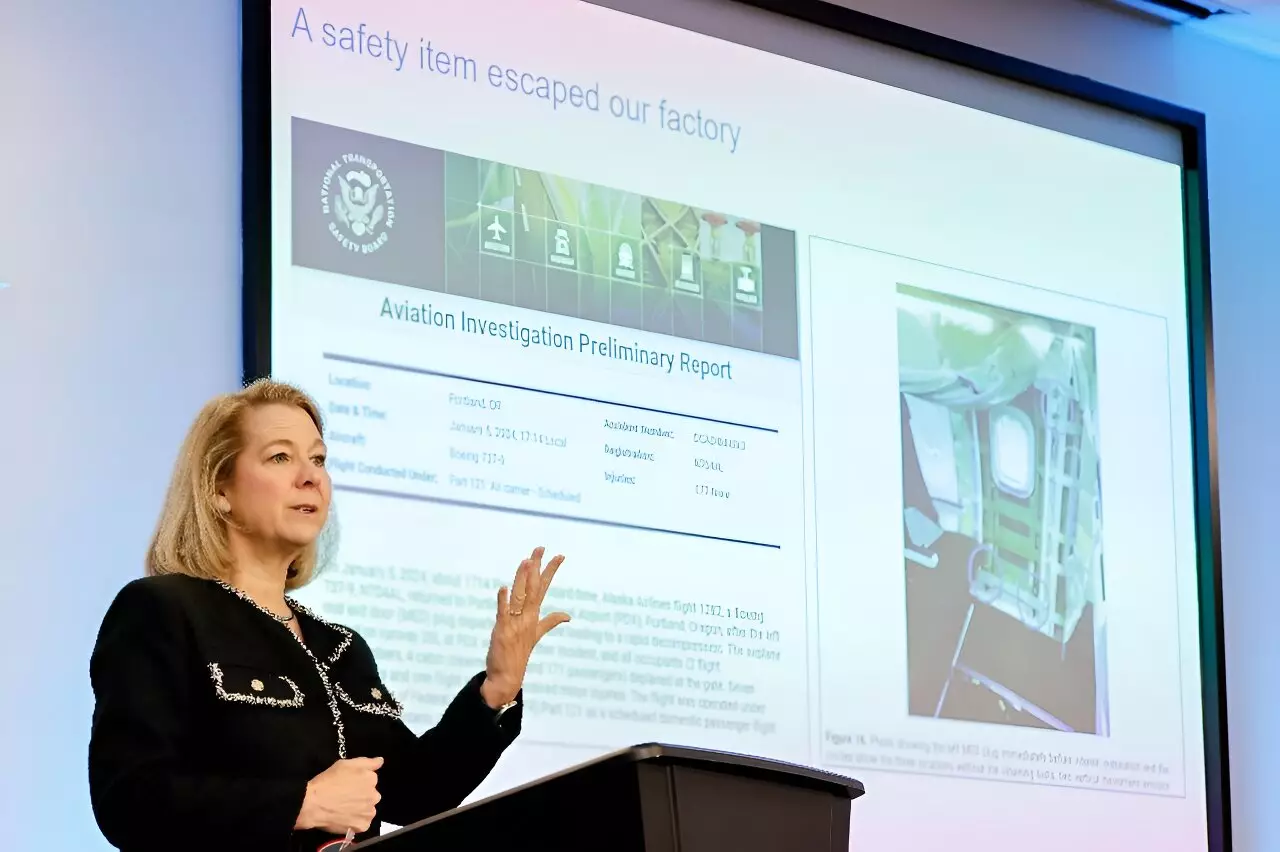Boeing, a prominent player in the aviation industry, recently found itself in hot water with the National Transportation Safety Board (NTSB). The NTSB sharply criticized Boeing for sharing confidential details about an ongoing investigation into a near-catastrophic aviation incident. This breach of protocol led to the NTSB blocking Boeing from accessing crucial information gathered during the investigation. The agency accused Boeing of blatantly violating the investigative regulations by discussing sensitive information that was meant to be kept confidential. This misstep has serious consequences for Boeing and casts a shadow of doubt on the company’s commitment to transparency and cooperation in such investigations.
Breaking the Agreement
One of the key issues highlighted by the NTSB was Boeing’s failure to adhere to the terms of the signed agreement as a party to the probe. Under the agreement, Boeing was required to refer all comments regarding the Alaska Airlines investigation to the NTSB. However, Boeing breached this agreement by sharing non-public investigative information with the media and speculating about the possible causes of the aviation incident. This breach of trust not only undermines the integrity of the investigation but also raises questions about Boeing’s respect for the regulatory framework governing such matters.
In response to Boeing’s misconduct, the NTSB took decisive action to hold the company accountable for its actions. The agency announced that Boeing would be barred from participating in an upcoming investigative hearing on the case, where the NTSB will delve deeper into the circumstances surrounding the aviation incident. This move sends a clear message that regulatory agencies will not tolerate violations of investigative protocols and underscores the importance of upholding the highest standards of integrity and professionalism in such matters.
Following the NTSB’s rebuke, Boeing issued a public apology, expressing regret for its actions and emphasizing its willingness to cooperate with the agency’s investigation. The company acknowledged that it had overstepped its boundaries by sharing information that should have been kept confidential and pledged to rectify the situation. However, the repercussions of Boeing’s misconduct may extend beyond a simple apology. The NTSB revealed that it was coordinating with the Department of Justice, which is considering taking legal action against Boeing for violating a deferred prosecution agreement related to two fatal MAX crashes. This development underscores the seriousness of Boeing’s actions and the potential legal consequences it may face as a result.
The Boeing debacle serves as a cautionary tale for companies operating in highly regulated industries, particularly the aviation sector. This incident highlights the importance of strict adherence to investigative regulations and the need for clear communication protocols when dealing with sensitive information. Boeing’s misstep not only damaged its reputation but also eroded trust in its commitment to safety and accountability. Moving forward, it is imperative for companies to prioritize transparency, cooperation, and compliance with regulatory requirements to avoid similar pitfalls and maintain the trust of stakeholders and regulatory authorities.


Leave a Reply